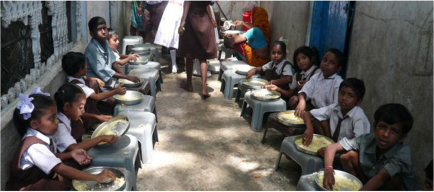I recognise I am fortunate to have been born in a country where a free health care service exists with high standards of training and care in mental health. Volunteering in a developing country provides a unique experience of another culture and health care system. It also represents an opportunity to share skills and provide care to people that have no access or expectation of such support. When looking to volunteer abroad as a child and adolescent psychiatrist my options appeared to be limited. Many advised the language barrier would limit the effectiveness and scope of any work. Child and adolescent psychiatry is also a relatively undeveloped area of health provision in many developing countries. While these two points are relevant and there are many challenges to this work, having started mental health projects through the charity Calcutta Rescue, I can see that child and adolescent mental health professionals are needed, and there is potential to do extremely important and rewarding work.
In the past month, I have started to use twitter to try to connect with other mental health professionals to link them to this blog. I hope by sharing my experience of volunteering abroad I will encourage others who are thinking about such a move. I also hope I can provide honest feedback on which skills are transferable and what are realistic expectations. While I will consider this blog a success if just one person decides to volunteer abroad, ideally I would love for the work to continue at Calcutta Rescue, with other mental health professionals volunteering in the future.

The beginning
A difficult point was raised at a meeting with the CEO and the senior staff at Calcutta Rescue’s two schools. A small number of children had persistent poor attendance despite various interventions by the school. There was a question as to whether these children should be excluded, as places at the school are in demand and resources scarce. This seemed logical but the management wanted to make sure they were doing what was in the best interests of the children. It was agreed that any child that was being considered for exclusion would first be assessed by me to determine why they were not attending.
The importance of getting these assessments right weighed on my mind for the next few weeks. Outside my flat lives a family with a young child. The father and mother sleep under their hand drawn rickshaw and the little 5-7 year old boy sleeps next to them on a piece of cardboard. It is a distressing sight and a painful reminder of the desperate level of destitution and poverty in the city. The families at CR live in similar conditions, albeit they normally have a some sort of structure to sleep under, even if this is just a simple sheet of plastic. What would be the effect on a young developing mind, growing up in these conditions? What would be the reasons for a child’s non-attendance at a school? Surely very different to what I may expect to see in the UK. Would my own experience and understanding of the world be so far removed from these families that I was being naive to believe I could make a difference?
Part 2: Egocentric western societies and psychological space (link at top of page)
